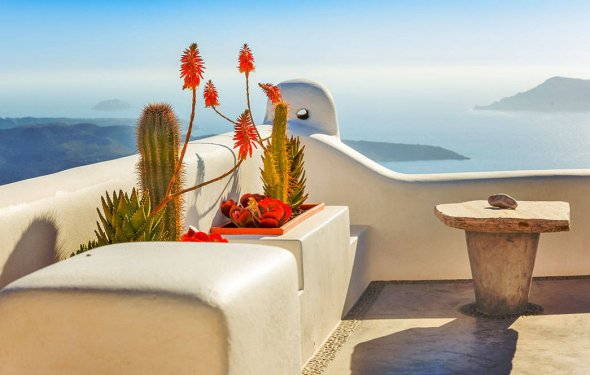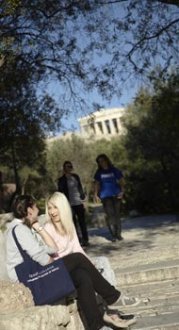Random Facts about Greece


ACG & Athens
The history of The American College of Greece is deeply connected with the history of Greece in the 20th and 21st centuries. As a city bathed in history and poised beneath the shadow of the majestic Acropolis, Athens is like no other city in the world, affording ACG students the opportunity to quite literally “Learn Where Learning Began.”
Interesting Facts About Greece
- Greece’s official name is the Hellenic Republic. It is also known as Hellas, or Ellada.
- 17.5 million tourists visit Greece annually, more than the country’s entire population of 11 million. Tourism constitutes nearly 16% of Greece’s Gross Domestic Product (GDP).
- The Parthenon (“Place of the Parthenos, ” from parthenos or “virgin”) was built almost 2, 500 years ago and sits on the Acropolis Athens. Originally featuring colorful sculptures and a large gold-and-ivory statue of the goddess Athena, it took 15 years to build.
- Voting in Greece is compulsory for every citizen 18 or older.
- Greece is the world’s third leading producer of olives; some olive trees planted in the 13th century are still producing their fruit.
- 7% of all the marble produced in the world comes from Greece.
- Thousands of English words come from the Greek language, sometimes via Latin. Common English words from Greek include “academy, ” “apology, ” “marathon, ” “siren, ” “alphabet, ” and “typhoon.”
- In the 1950s, only about 30% of Greek adults could read and write. Now, the literacy rate is more than 95%.
- Greek legend says that when God created the world, God sifted all the soil onto the earth through a strainer. After every country had good soil, the stones left in the strainer were tossed over God’s shoulder and created Greece.
- Greece is the leading global producer of sea sponges.
- Greek ships make up 70% of the European Union's total merchant fleet.
- Greece has more archaeological museums than any country in the world.
- Football, or what Americans call soccer, is the national sport of Greece.
- Retirement homes are rare in Greece. Grandparents usually live with their children’s family until they die.
- Many traditional Greek structural features such as doors, windowsills, furniture, and church domes are painted a turquoise blue, especially in the Cycladic Islands, because of an ancient belief that this shade of blue...

